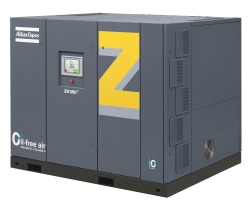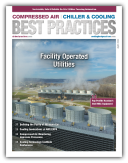The story of Atlas Copco’s 140-year commitment to innovation.
When thinking about innovation during the past century, the mind immediately wanders to consumer-facing brands that make products that are experienced by users – like a mobile computer and videophone that fits in our hands or the technology applications through which almost all modern business is conducted.
One company that has a profound influence on how these well known innovative companies manufacture products, is Atlas Copco. As the company celebrates its 140th anniversary in 2013, it is reflecting on its own innovations and adaptions – products, service and market expansion – that have placed it in a position as a world-leading supplier of compressed air solutions, construction and mining equipment, power tools and assembly systems with a principal focus on “sustainable productivity.”
One of the best places to search to determine if a company is living up to their marketing promises – specifically in regards to innovation – is their annual report.

Atlas Copco Compressors Product Company in Houston processes and distributes customer orders across North and South America. Opened in 2012, this state-of-the-art facility produces a wide range of standard and customized air compressors, dryers and skid packages.
Atlas Copco’s 2011 annual report cites a separate line item for research and development at approximately \$278 million (USD) – which equates to more than two percent of the company’s revenues. This is a primary reason the company has been recognized the past few years by Forbes, Thomson-Reuters and Newsweek, among others for its commitment to innovation. Also in 2011, the Patent Board of Global Industrial Equipment Manufacturers recognized Atlas Copco for the quality of their patent portfolio – placing the company 13th on their global list.
This commitment to research and development didn’t begin recently; it has been ingrained in the company’s culture from the beginning.
A Brief History
Atlas Copco was founded in Sweden in 1873 as a manufacturer of railroad rolling stock (a burgeoning industry at the time in need of a local manufacturer in Sweden). At the turn of the century the company diversified its offerings into riveting and chipping hammers and drills intended for metalworking in the manufacturing industry. While ramping up production of these tools, Atlas Copco began building and servicing their own air compressors. And in 1904, Atlas Copco invented the piston compressor as a solution to their own manufacturing challenges and shortly thereafter began producing and marketing the new technology. The company’s air compressor business expanded greatly during the years leading up to World War I, as manufacturers and the construction industry realized a greater need for compressed air.
Atlas Copco began U.S. operations in 1950 with the opening of offices in San Francisco and New York. Through the middle of the last century, Atlas Copco developed new tools with increasingly improved performance and precision to meet the needs of the quickly growing automotive and aviation industries.
Ushering in a new era of compressed air efficiency and opportunities, the company delivered its first screw compressor in 1955. In 1967, Atlas Copco introduced both the world’s first mobile screw compressor that produced oil-free compressed air and the oil-free, stationary, Z Series. With these developments, new opportunities were created for pneumatics in the medical care and food industries. And, in 1994 Atlas Copco unveiled the first economical to manufacture variable speed drive compressor – leading the way for the industry’s movement into more sustainable technologies.
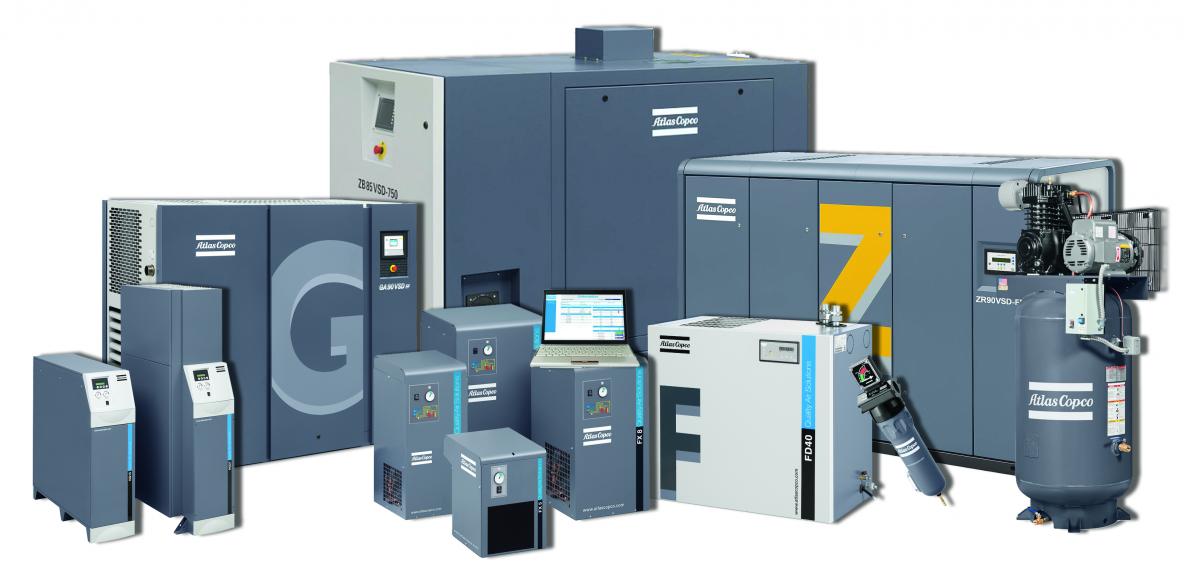
Atlas Copco Compressors manufactures, markets, and services oil-free and oil-injected stationary air compressors, air treatment equipment and air management systems, including local manufacturing of select products.
|
The Atlas Copco ZH 350+ is a highly energy-efficient high-speed 3-stage turbo oil-free compressor. Designed for pharmaceutical, electronics, aviation, automotive and other industries that rely on high-quality, 100% oil-free air, the ZH 350+ is the most energy-efficient oil-free compressor ever built at Atlas Copco. |
During the past fifteen years, Atlas Copco introduced the world’s first Class Zero (ISO 8573-1 CLASS 0 - 2010) oil free compressor, revolutionary screw blower technology that is on average 30 percent more efficient that traditional lobe blowers and the world’s first compressor designed to reuse 100 percent of its required energy input as hot water within the manufacturing process. And in 2011, the company unveiled the most energy-efficient oil-free compressor ever built – the ZH 350+, a high-speed 3-stage turbo centrifugal compressor.
But, the company’s innovations haven’t been solely based in compressed air. Through the years, Atlas Copco made significant investments and advancements in mining tool technology – from lightweight handheld drills to a hydraulic rock drill, the COP 1038 – the predecessor of many of today's rock drills – and manufacturing industry tools designed for performance and ergonomics. Along the way, the company even aided in the discovery of a species of dinosaur, Atlascopcosaurus, meaning "Atlas Copco lizard," a genus of herbivorous basal euornithopod dinosaur from the Early Cretaceous period of the present Australia.
|
Atlas Copco USA • Revenue: \$2.8 billion (USD) in 2012 • People: approximately 4,700 • Locations: 109 • Acquisitions since 2007: 19 |
Atlas Copco has leveraged these technological advancements to foster rapid growth during the past two decades. And today, Atlas Copco’s North America activities account for one-fifth of the company’s total revenues – making the United States the company’s single largest market.
The Growth of the Brand in the United States
“If we go back 20 years, we often had customers ask – who is Atlas Copco?” said Kurt Lang, chief operating officer at Air Technologies, one of the world’s largest independent compressor distributors and service centers and a 33-year partner of Atlas Copco Compressors. “Today, it very rarely comes up, the brand awareness has grown to the point that most clients know Atlas Copco is the most purchased rotary screw compressor in the world.”
Yet, no company grows quickly without some pains.
“When I was selling Atlas Copco compressors for an Atlas Copco distributor in the Tennessee region, the only pushback we received was about repair and replacement time and from misconceptions about the amount of business Atlas Copco conducted in the U.S. market,” said Steven Green, now director of operations at Plains All American Pipeline, a leader in oil transportation and storage headquartered in Houston. “If a manufacturer took the time to compare the products – lifespan, energy requirements, reliability – we could always provide them with the perfect machine for their operations.”
As a sales engineer, Green focused on selling Atlas Copco compressed air and maintenance packages in the early 2000s. He recalls that the ergonomic features of the machines pleasantly surprised customers, but what customers were most impressed by was the machines’ efficiency.
“As far as I’m concerned, efficiency started with Atlas Copco and everyone else followed suit,” added Green. “The key differentiator was the initiative from Atlas Copco to get out and assess the situation and provide the customer with a real equipment solution – not just take an order.”
Atlas Copco took all of this feedback from the market and set out to make changes and investments in how they operate in order to serve their customers better.
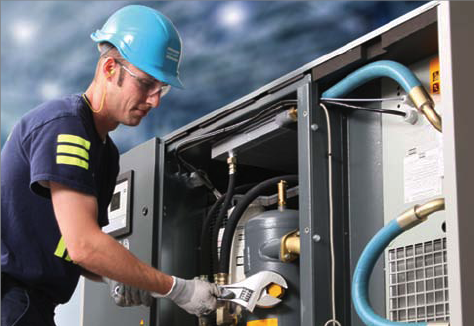 |
|
Atlas Copco technician performing regular maintenance on an Atlas Copco air compressor. |
“Our number one goal is taking the best possible care of our customers,” said Paul Humphreys, vice president of communication and branding for Atlas Copco Compressors. “Everything we do in product innovation – performance, efficiency, sustainability, reliability – is all focused on helping our customers improve the performance of their facilities, but to do that we have to connect with our customers’ needs.”
To really understand their strengths and weaknesses in serving their customers, Atlas Copco invested several million dollars into an ongoing comprehensive customer loyalty program, based on the customer loyalty metric (Net Promoter Score or NPS) introduced by Fred Reichfeld in his book, “The Ultimate Question.” A Net Promoter score is a grade of customer satisfaction – where on a scale of 1-10, 9-10 are deemed promoters, 7-8 are labeled passive and 1-6 are qualified as detractors. Atlas Copco strives to make every customer a promoter.
“If you ask any Atlas Copco employee what NPS means they will say, ‘It’s how well we are taking care of the customer,’” said Humphreys. “Every employee is engaged with the program and familiar with the scores and the details that come with it, but surveying 10,000 global customers a month and reporting the results is just part of the process – the key is acting on the intelligence and that’s what we’ve done.”
Atlas Copco Compressors Investments in the U.S. since 2008
During the past five years, Atlas Copco Compressors has made significant investments and taken purposeful actions to build better customer relationships around the world and specifically in the United States.
U.S. Investments 2008-20122008
2009
2010
2011
2012
|
In 2008, Atlas Copco increased production capacity at their 187,000 sq.-ft. Atlas Copco Compressors manufacturing plant in Rock Hill, S.C. and opened a new distribution center in Rock Hill, part of their commitment to ensure a 24-hour delivery of in-stock parts to customers across North America.
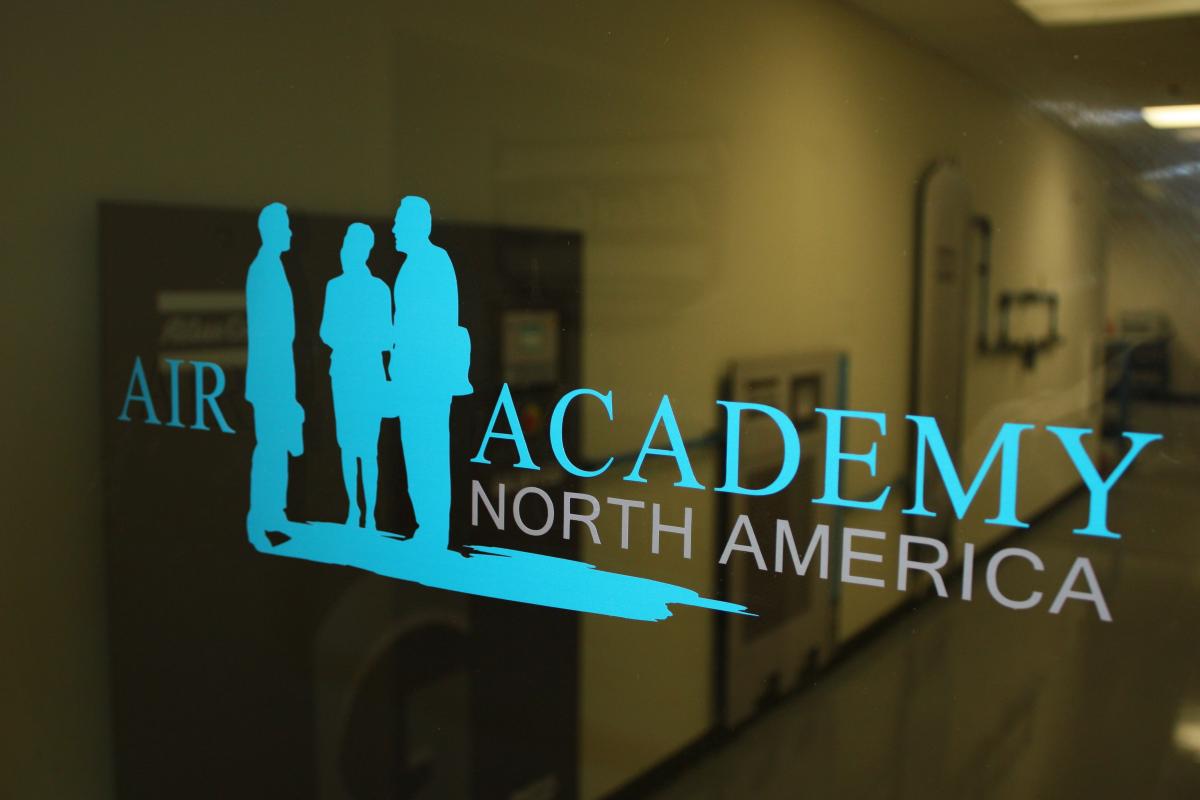 |
|
The Atlas Copco Compressors Air Academy at their North American headquarters in Rock Hill, S.C., provides extensive training on all Atlas Copco product categories for employees, partners, distributors and associated companies. |
In 2009, Atlas Copco opened the Atlas Copco Air Academy, a state of the art training facility for employees, customers, distributors and partners, and created a U.S. Customer Service Response Center to provide customers with a seamless process for communicating with the company and its numerous subsidiaries nationwide. Then, in 2010 the company opened a now 150,000 sq.-ft. national distribution center in Charlotte, N.C.. The facility ships replacement parts and equipment the same day as the order in almost all scenarios – providing replacement parts to customers in less than 24 hours.
In 2011 Atlas Copco opened the Origin-Air facility in Charlotte, N.C. Origin-Air is a world class overhaul facility dedicated to the refurbishment of air elements and valves in the U.S.
Also in 2011, Atlas Copco Group expanded from three business units to four by adding Construction Technique, which includes divisions for portable compressors and generators, road construction equipment and construction tools. Atlas Copco now conducts financial reporting under the new structure – Compressor Technique, Industrial Technique, Mining and Rock Excavation Technique and Construction Technique. And specific to compressors, the company opened a Quality Air Division with a special focus on the products that can improve air quality and subsequently the customers’ end products.
“Because of the company’s global and broad industry perspectives, we can create different kinds of customer solutions – regardless of where they come from,” said Lang. “But, the most important thing I’ve seen Atlas Copco do better than the competition is their absolute commitment to the air compressor business overall and their constant and relentless improvement of products.”
During the time period from 2008-2012, the company has made several acquisitions, including local distributors in key markets across the country, all in order to be closer to their customers. As part of the initiative, Atlas Copco launched a new distributor program and is currently working with more local partners than ever before.
Also in 2012, the new Atlas Copco Compressors Product Company in Houston became fully operational, processing and distributing customer orders across North and South America. This state-of-the-art facility produces a wide range of standard and customized air compressors, dryers and skid packages.
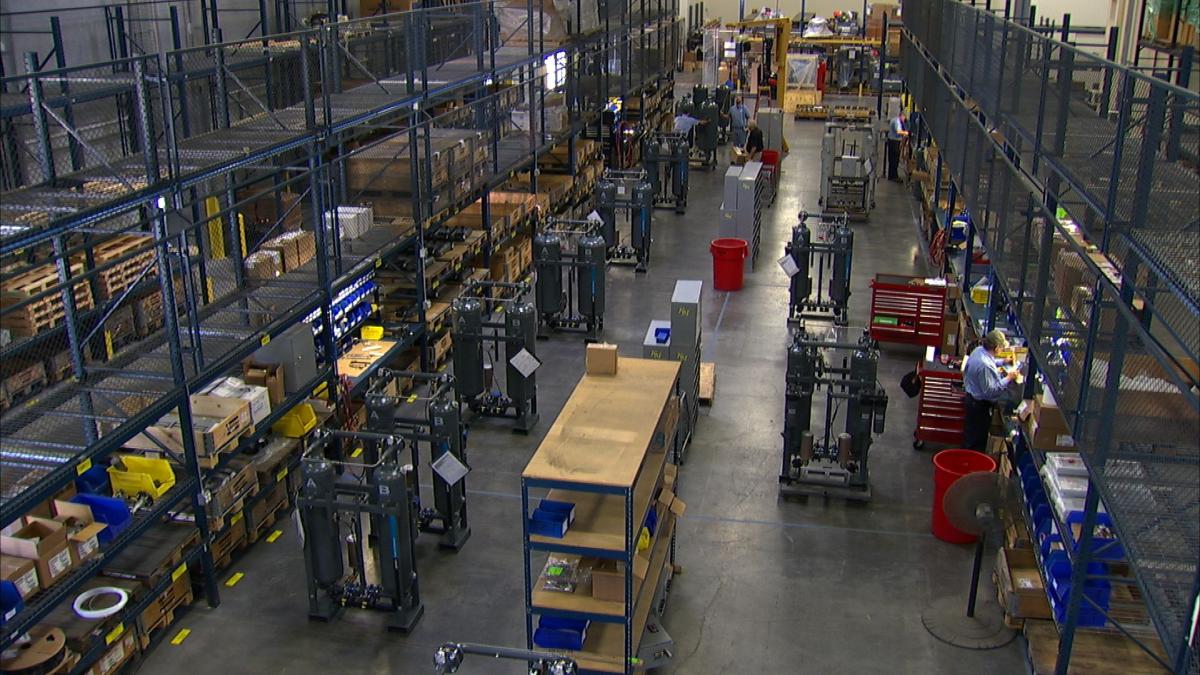
The 96,000 square-foot Atlas Copco facility in Houston is a competency center for Engineered Products and is home to four unique Business Units: Atlas Copco Systems Houston, which produces a wide range of standard and customized compressor skid packages; Greenfield Compression, which produces high-pressure compressor packages along with Natural Gas Vehicle dispensers; and the production site for a wide range ofstandard and customized air dyers and air treatment products.
“Building the best possible team to take care of the customer is the number one philosophy behind our distributor strategy,” said Humphreys. “Having local experts backed up by the support of the global Atlas Copco organization results in the best solutions for our customers.”
Atlas Copco evaluates every area of the U.S. depending on the unique circumstances in that region – they directly manage customer relationships, have purchased local distributors and work with both exclusive and multiple distribution points.
“The key thing is Atlas Copco listens; when there is a challenge, we can have a conversation and work out a solution based on what is the best thing to do for the customer,” said Lang. “We’re both committed to taking care of the customer and finding solutions together.”
“Sustainable Productivity”
In 2010, Atlas Copco rolled out their new brand promise: “committed to sustainable productivity.” Atlas Copco’s Sustainability Report is a yearly report prepared since 2001 in accordance with the Global Reporting Initiative (GRI) guidelines. This initiative has placed Atlas Copco on a list among the Global 100 Most Sustainable Companies in the world seven times in the past eight years and made the company a mainstay member of the Dow Jones World Sustainability Index.
Atlas Copco sustainability initiatives, both globally and in the U.S., include:
- Boosting customer energy efficiency by at least 20 percent between 2010 and 2020 by continuously designing and developing more efficient products.
- Decreasing CO2 emissions from operations by 20 percent in relation to cost of sales by 2020 (using 2010 as the base year).
- Membership by Atlas Copco Compressors with the U.S. Green Building Council.
- An initiative between Atlas Copco Secoroc and the U.S. Department of Energy, as part of President Obama’s challenge to generate 80 percent of U.S. electricity from clean energy sources by 2035, to develop a down-the-hole (DTH) hammer design capable of low-cost, high-production drilling in the high temperatures of deep geothermal wells.
- Reducing Atlas Copco’s water consumption and promoting clean drinking water in countries in need. Their employee run Water for All organization will pass \$200,000 in donations in the U.S. in 2013.
- Increasing employee diversity in both nationality and gender.
While much has changed since 1873, one thing has remained constant – Atlas Copco’s commitment to developing leading-edge technology and serving its customers. It’s a combination that has served the company well for 140 years.
“The best way we can celebrate our anniversary is to thank all of our customers who have made our success possible,” said Humphreys. “We plan to roll out numerous programs this year as a direct thank you to our customers; we’ll be announcing details on our website in March.”
For more information visit www.atlascopco.com
To read more Technology articles, visit www.atlascopco.com/technology/compressors

